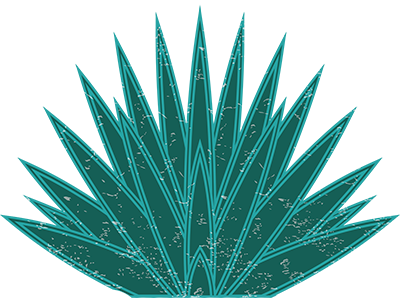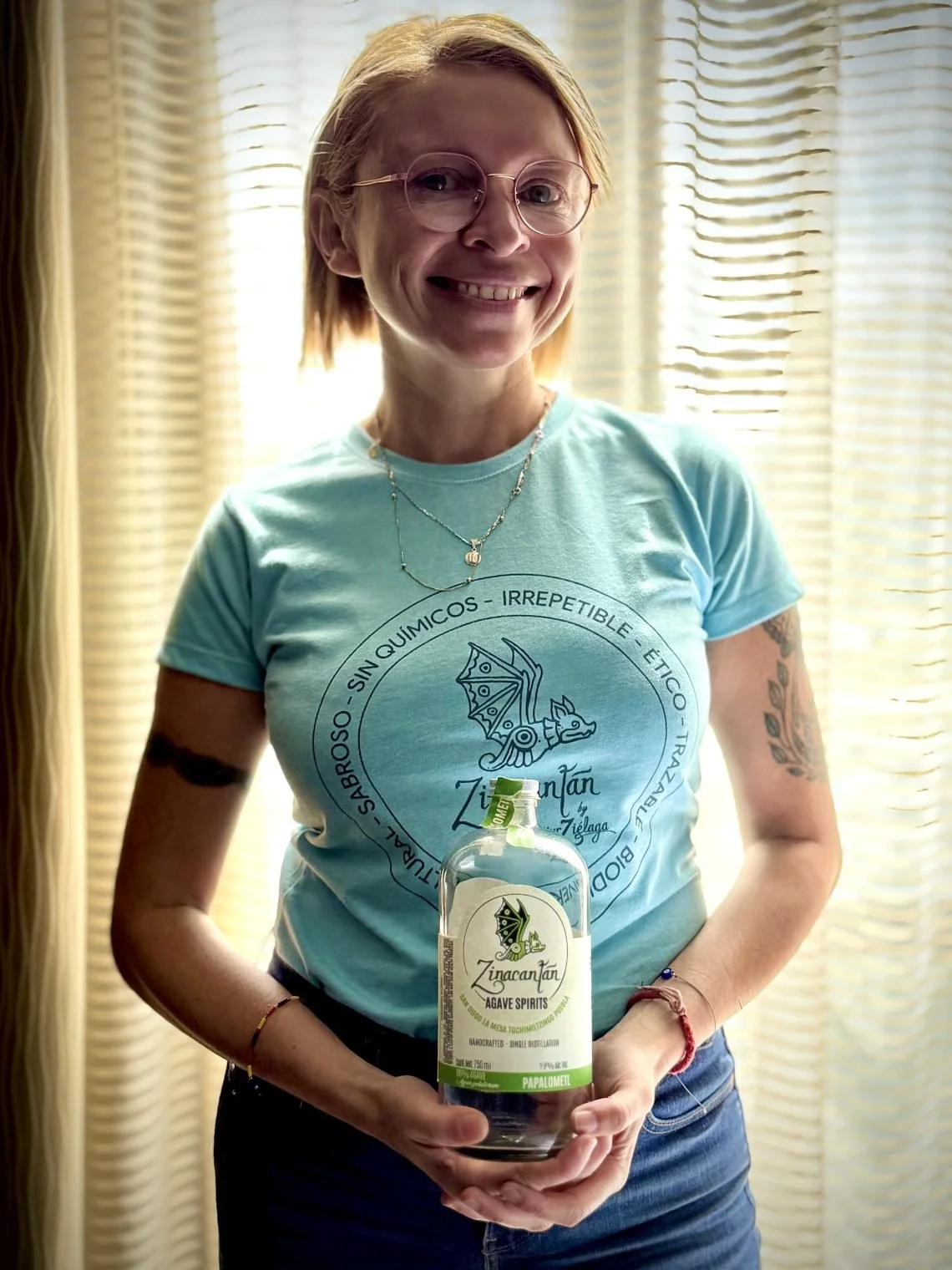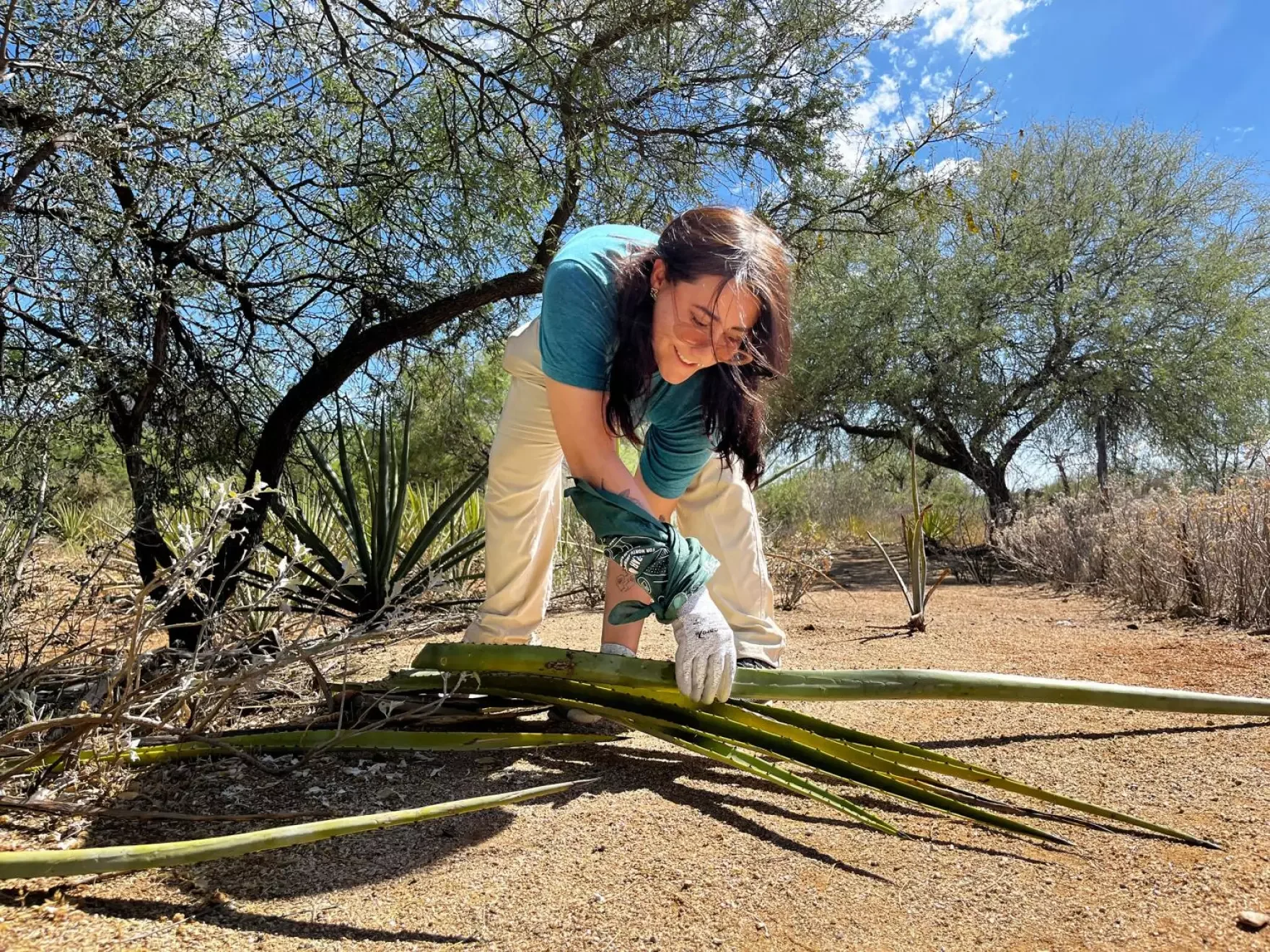Women in the 2025 Agave Heritage Festival
by University of Arizona W.A. Franke Honors Students: Jaclyn Davis, Olivia Gard, Malia Henert, and Gia Cazares
The Agave Heritage Festival aims to honor the legacies of those who have substantially contributed to the development of the agave industry in both the United States and Mexico. Some of the most prominent figures involved in this development are women who have needed to overcome substantial barriers in cultivation, production, and marketing. These barriers have been imposed by the historical nature of the agave industry, which has traditionally been dominated by men.
While the agave industry is spearheaded by a wide variety of people from unique backgrounds, advancements made by women leaders within this industry must not go unnoticed. Our team has created testimonials to highlight the most important takeaways from our interviews, as well as to showcase the many different leadership roles that women within the agave industry possess. These women have advanced in fostering a more equitable environment for all leaders, and our team is grateful for the opportunity to recognize them.
Our team’s preliminary research revealed that while women are very important components of the agave industry, they are often underrepresented in this field. One study by Navarrete Torres (2023) examined the involvement of women in the tequila industry of Jalisco, Mexico. Despite the fact that tequila makes up a large part of the history and economy in this region of Mexico, “only 11 of the 174 registered distilleries were run by women” as of 2022. Through interviewing several women about their experience in the agave industry and creating written testimonials, we have been able to showcase the leadership of these women and their contributions to the cultural and commercial significance of agave. Not only that but 25% of women in this region have produced mezcal for 30 years (Cuevas et. al, 2019). These statistics are important to understanding the lack of representation of women in this field. Although they are just from one portion of Mexico, they are telling towards the overall themes we have uncovered.
Susan Coss (Mezcalistas, Mexico in a Bottle)
“I think one of the things that has been crucial in navigating this kind of space is that women have a tendency to find each other. And also too, we recognize the need for mentorship.”
The subject of women is one that is near and dear to Susan’s heart. Since 2015, she has been focused on building Mezcalistas as a business and strengthening the status of women in the agave and alcohol industries. Susan is happy to say that she runs a woman-owned business, but this is because she recognizes the impact it has had on other women and how it helps other women thrive.
Susan has seen more women being quoted in articles, which she thinks is very important for advancing women leadership in the agave industry. She believes that women can sometimes be their own worst enemies, either because of their own imposter syndrome or due to the harsh realities women work within. However, these challenges have led women to be much more likely to follow up on things, as well as be a bit more ambitious.She especially respects women working in Mexico, acknowledging that they often face different challenges.
Susan hopes that Mezcalistas continues to be recognized as the primary source of information about agave spirits. If people are looking to learn more about various agave-related topics, Mezcalistas will help inform those people on important and relevant information. She hopes that Mezcalistas continues to be recognized and applauded by mezcal businesses while further introducing mezcal and its importance into the U.S. market.
Diana Pinzon (Zinacantán)
“We have to say, ‘We are smart, we are strong, and we take up space.’”
In a traditionally male-dominated industry, Diana believes women shouldn't wait for permission, prompting women to just “do it.” She believes responsibility rests on our shoulders as humans, especially as women and as minorities, to fight harder to be heard, to lead, and to shape the future of the world we want. Her leadership at Zinacantán is proof of this philosophy, where these women are blending scientific data with tradition and social consciousness to create not just a product, but an ecological movement.
Diana isn’t afraid to have uncomfortable conversations, she sees it as necessary. At the Agave Heritage Festival, she delivered a powerful lecture on the colonialism present in the agave industry, centering voices of communities that have been silenced. “When we talk about U.S. citizens involved in this business, they often don’t recognize our intelligence, our capacity, or our bicultural heritage.” Diana aims to incorporate both science and tradition into her work at Zinacantán. She recognizes the importance of not only the data that she collects, but also the knowledge and lived experiences of local communities, in order to mitigate her companies ecological impact and conserve the ecosystem of agaves.
Diana does not shy away from calling out the sexism that women in the industry face, recognizing that women’s opinions are often dismissed, minimized, or met with hostility. “At the end of the day, it’s a business and if one part is women, the other part wants to put you in the corner.” Diana Pinzón is a woman who refuses the corner. Through Zinacantán Mezcal and her powerful message she is demanding that space. She urges even more women to do the same.
Caitlyn Hall (Agave Heritage Festival)
“No one in the history of mankind has ever done something alone, that doesn't mean you need to in orderto prove a point.”
Although Caitlyn plays a more external role in the industry of agave, she has made many strides to aid in uplifting women. She has firsthand experience with being the only woman in the room and believes that in order for women to succeed they need to work together. She specifically mentioned how she has seen women work against each other in the scientific industry and recommends that women uplift each other and work together rather than compete with each other.
In the agave industry specifically, she notices the difference in treatment between men and women when it comes to recognition for their contributions. She believes in changing the narrative to better support how women participate in majority of the agave harvesting process. Due to the process being so extensive, she thinks that celebrating every step and small feat is of utmost importance. On the environmental side, 80% of agave is wasted during harvesting, and women in the industry such as Valeria Canedo and Leonela Baez help women find alternatives of waste. She believes that supporting women is the best solution to combating male dominated fields.
Caitlyn hopes that her work in the agave industry builds others in the community up and although her work does not directly correlate with it, she still plays a key supporting role. At the Agave Heritage Festival this year she helped with the logistic side of things, making sure that everything went smoothly. She was able to elevate many voices that were not heard by putting together a presentation that included binational women and other underrepresented populations. Towards the end of the interview she left us with, “other people’s success does not mean you fail” which is often forgotten by strong women in society.
Other Influential Women in Agave
Mujer Agave
A group of women supporting women in the agave industry! They have been a part of various events and conferences in both Mexico and the United States, celebrating women and agave through these experiences. Find out more about thisincredible group of women on Instagram @mujeragave!
Valeria Cañedo
Rachel Burke
The Agave Restoration Coordinator at Bat Conservation International, Rachel works to promote a resilient landscape for nectar-feeding bats in the southwestern United States. She presented at the Agave Heritage Festival in 2025 and you can find out more about her work on the Bat Conservation International website!
Valeria Cañedo
Valeria Cañedo is a biologist from the University of Sonora, Mexico, working in conservation and sustainable development. Her research often focuses on protecting migratory pollinators and their habitats in Bacanora-producing communities in Sonora. Valeria presented at the Agave Heritage Festival in 2025!
Francesca Claveria
Francesca Claverie started the nursery, now known as Borderlands Nursery & Seed for Borderlands Restoration Network. She is passionate about increasing accessibility and enthusiasm for native plants and is very involved in the agave industry. Find out more about Francesca’s work on the Borderlands Restoration Network website!




